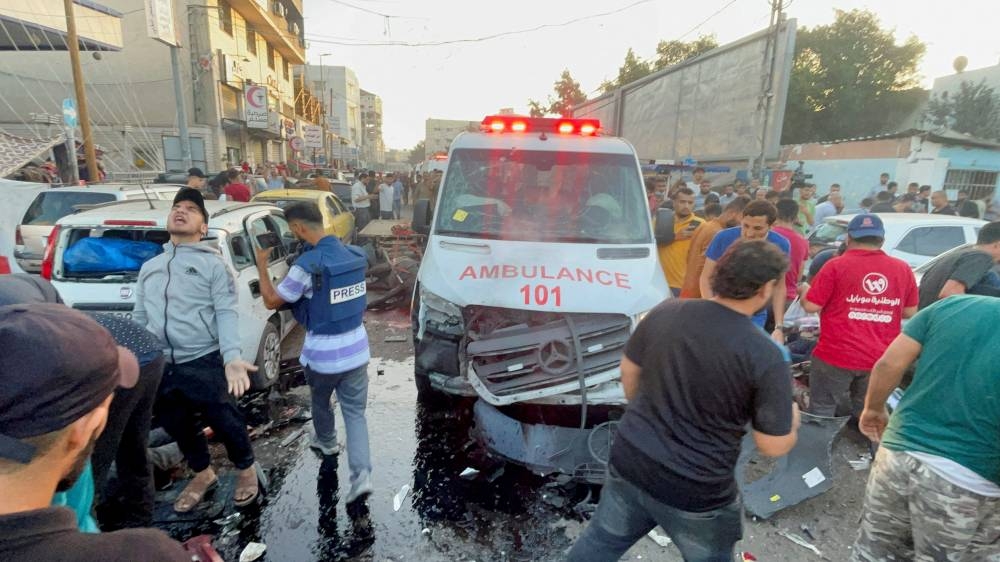- Hospital nurse in ambulance recounts terror of air strikes
- 'No time to grieve', says man who lost relative in strike
"The ambulance was shaking so much," he said of the terrifying Israeli air strikes on Friday that hit around him and his charges from al-Shifa Hospital. "It placed them between life and death but we couldn't do anything about it."
The Gaza Health Ministry, a hospital director and the Palestinian Red Crescent Society all said the convoy of five ambulances was evacuating wounded to supposedly safer south Gaza prior to possibly crossing the border to Egypt.
The first strike, at a roundabout a few minutes away from the hospital, injured a paramedic and a passenger in one of the ambulances, Barakat said.
The second, near the hospital gate as the convoy was returning there having abandoned the attempt to drive south, hit an ambulance ahead of his, killing a paramedic and others nearby, he added.
With bodies lying in pools of blood, Barakat's vehicle fled the chaos and headed for the central ambulance station, about 1.2km away, other strikes shaking them en route.
Eventually they took the patients back to al-Shifa - no nearer evacuation and in a worse state than before.
Hospital director Mohammad Abu Selmeyah said 15 people had been killed and 60 injured in the strike at the hospital gate.
The UN secretary general and aid agencies working in Gaza condemned the attack "This is a new low in an endless stream of unconscionable violence," said Doctors Without Borders.
Hamas has invited international verification of Israeli accusations of using hospitals.
Barakat was back at work on Monday, treating seriously injured patients with no power and scarce other resources.
"There is a huge lack of medical equipment and electricity, and very high humidity in the building," he said, shortly after disinfecting a man's long, stitched-up abdominal wound with what looked like a small antiseptic wipe.
Health authorities in Gaza say the bombardment has killed more than 10,000 people.
Ashraf, a resident of Gaza City sheltering in al-Shifa for three weeks with his wife and four children, said he ran outside when the ambulance convoy was hit.
"At the door of the hospital I saw the ambulance that was hit and people scattered nearby, wounded, and many were dead. One of my relatives was among the dead too. He was so young," said Ashraf, who did not want to give his family name for safety reasons.
"There was no time to grieve. I got involved with others in carrying the wounded into the hospital ... If they hit ambulances there is no safe place anymore."

